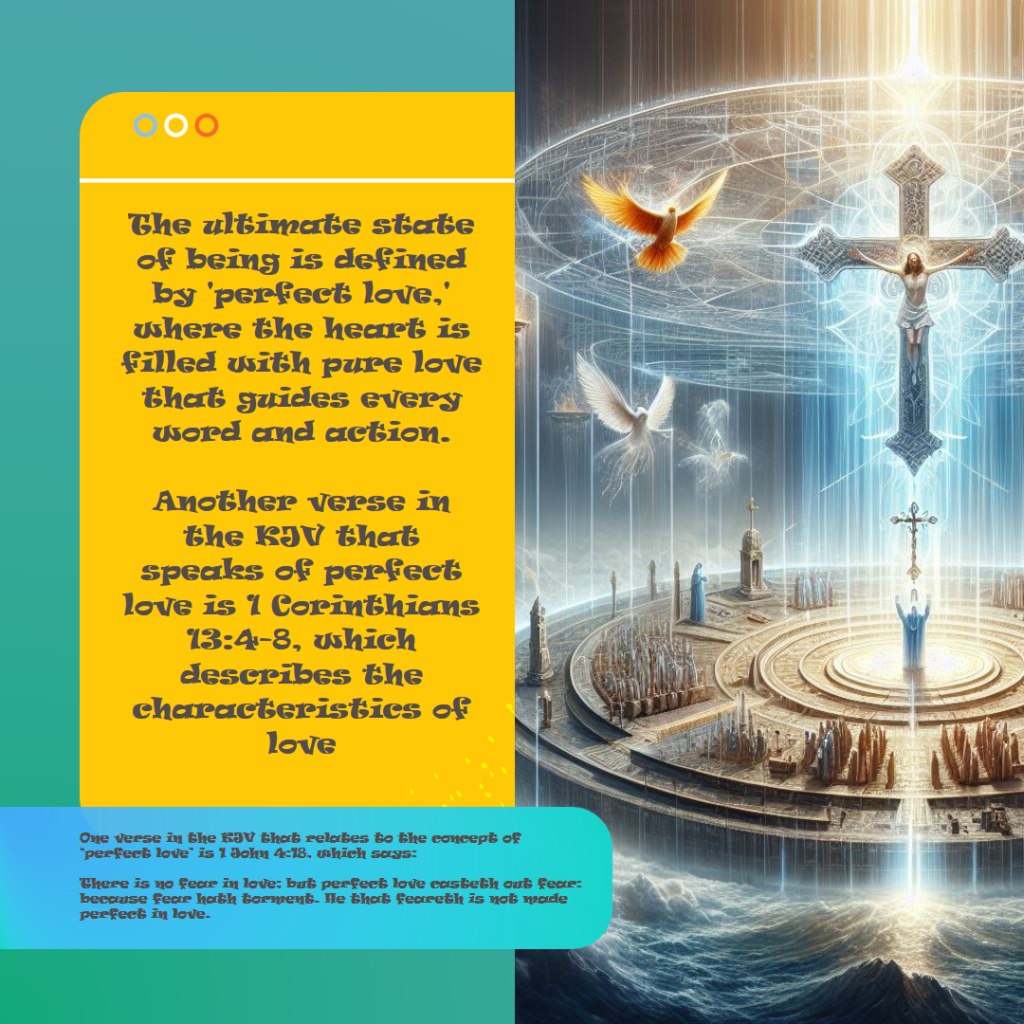Written by Lesallan – January 31, 2024

Wesley’s Scriptural Basis for Entire Sanctification
Lesallan Bostron
Ohio Christian University
THE3360 Theology of John Wesley (ONLSP24)
Dr. Steven Gerig
January 30, 2024
Wesley’s Scriptural Basis for Entire Sanctification
The text assigned (Wesley, J., 2017) discusses John Wesley’s belief that Christians can achieve a state of complete sanctification in their lifetime. According to Wesley, the ultimate state of being is defined by “perfect love,” where the heart is filled with pure love that guides every word and action (Wesley, J., 2017). This discussion examines two passages from the New Testaments that Wesley used to support his doctrine and compares his viewpoint with the perspectives of other theological traditions on Christian perfection.
Wesley interprets Matthew 5:48 (KJV) as a commandment for Christians to attain perfection in this life. He defines perfection as a state of complete love, not sinlessness. It is a process of growing in grace and holiness that continues throughout our lives (Wesley, J., 2017). His interpretation of Matthew 5:48 is consistent with his Arminian theology, which emphasizes “human free will and cooperation with God’s grace” (Wesley, 2009). He believes God enables and invites all Christians to pursue perfection, but does not force them to do so. He also acknowledges that perfection, does not exempt Christians from temptation, weakness, or ignorance. He states, “A person filled with the love of God is still liable to these involuntary transgressions. Such transgressions you may call sins if you please: I do not” (Wesley, J., 2017).
Calvinism and Catholicism have different interpretations of Matthew 5:48 from Wesley’s perspective of perfection. Calvinists believe that perfection is impossible for humans in this life, while Catholics believe in two types of perfection, moral perfection and essential perfection, the latter of which can only be attained in heaven. They also see spiritual progress because of human cooperation and merit.
Wesley cites 1 John 4:17-18 (KJV) as a description and a test of entire sanctification. Per this verse, perfect love is the essence of Christian perfection, producing believers’ confidence, peace, and joy. Wesley explains that perfect love excludes all kinds of fear, such as fear of punishment, man, or death. This pure love of God ruling the heart expels all fear that has torment, and it also excludes all desire to please men, all dread of their censure or displeasure, and all fear of losing their favor or esteem (Wesley, J., 2017).
His personal experience of entire sanctification influences Wesley’s understanding of 1 John 4:17-18 (KJV). He claims that he received this grace on May 24, 1738, when he felt his heart “strangely warmed” and was assured of God’s love and forgiveness. He describes this experience as a “second blessing” or a “second conversion” that followed his initial justification by faith, “Wesley’s Aldersgate Experience” (Collins, 1999). He believes that this experience is available and necessary for all Christians who want to grow in holiness and love. He states, “I believe this perfection is always wrought in the soul by a simple act of faith; consequently, in an instant” (Wesley, J., 2017).
Different theological traditions interpret 1 John 4:17-18 differently. Lutherans reject Wesley’s belief in a second conversion and emphasize faith as a living trust dependent on God’s Word and Spirit. Martin Luther wrote that fear and love must go together in the Christian. Eastern Orthodox Christians view perfection as theosis or deification and love as agape or charity (Luther, M., 1525/1966). They interpret the verse as an invitation to become like God in love. According to Gregory Palamas, Love involves fear and joy, suffering and glory, humility and boldness (Palamas, G., 1351/1983).
In summary, this text discusses Wesley’s Scriptural basis for entire sanctification and how other Christian traditions do not universally accept it. His Arminian theology and personal experience influence his interpretation and application of specific passages. It is important to remember that everyone’s perspective on perfection is different, especially regarding religious beliefs. In Christianity alone, there are various interpretations of what perfection truly means. Therefore, keeping an open mind and understanding that perfection has no one-size-fits-all definition is essential. Acknowledging and respecting different viewpoints can create a more inclusive and understanding society where everyone’s beliefs are valued. So, let us embrace diversity in opinions and strive towards building a world where everyone is respected and accepted for who they are. Therefore, Wesley’s doctrine of entire sanctification requires further dialogue and evaluation in the future in light of Scripture and tradition.
The challenge I pose to you is to take a moment to reflect on these questions: How does Wesley interpret the biblical passages that support the doctrine of entire sanctification, such as 1 John 3:9 and Matthew 5:481? According to Wesley, what are the benefits and challenges of pursuing holiness and perfect love in this life? How did Wesley’s personal experience of salvation and sanctification shape his theological views and revival movement? How does Wesleyan-Holiness theology differ from other Christian traditions in its understanding of sin, grace, and faith? How has the doctrine and experience of entire sanctification influenced the history and mission of various holiness denominations, such as the Wesleyan Methodist Connection and the Pilgrim Holiness Church?
Blessings In Christ,
Lesallan
References:
Catholic Church. (1994/2000). Catechism of the Catholic Church (2nd ed.). Vatican City:
Libreria Editrice Vaticana.
Collins, K. J. (1999). A Real Christian: The Life of John Wesley. Abingdon Press.
Luther, M. (1525/1966). The Bondage of the Will (J.I. Packer & O.R. Johnston, Trans.). Grand Rapids, MI: Fleming H. Revell.
Palamas, G. (1351/1983). The Triads (J. Meyendorff & N.Gendle Eds., N.Gendle Trans.). New
York: Paulist Press.
Wesley, J. (2017). Plain Account of Christian Perfection. Createspace Independent Publishing
Platform.
Westminster Assembly. (1646/2012). Westminster Confession of Faith with Scripture Proofs.
(Ebook ed.). Retrieved from https://www.ccel.org/ccel/anonymous/westminster3.html



